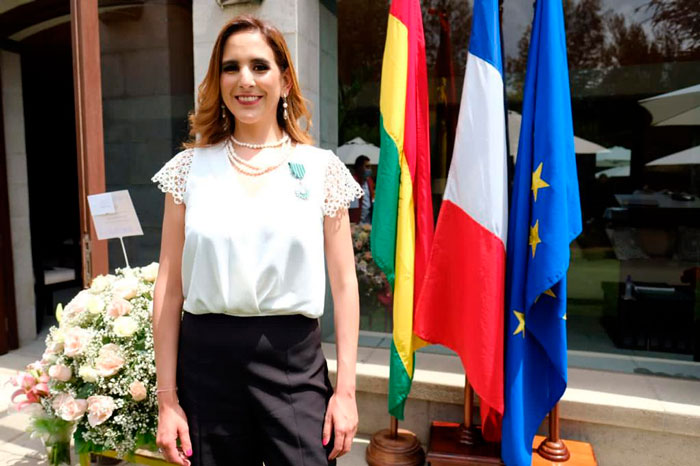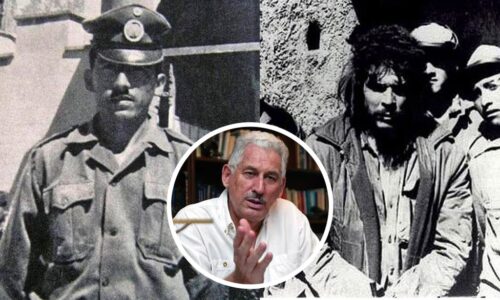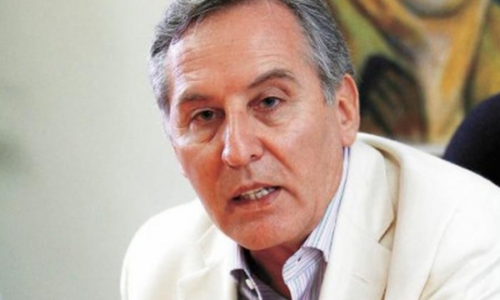

2 December 2021
A multifaceted man, a new man
He was the founder and director of Presencia, an emblematic newspaper. He studied Philosophy and Law and inspired hundreds to teach in these areas. His book on Criminology is a fundamental guide on this subject. He presided over a distinguished Electoral Court, recognized for defending institutionalism. Catholic, humanist, defender of human rights, father, who acted as mother, grandfather. A lover of life, knowledge, and Bolivia.
There is no doubt that Huáscar Cajías Kauffmann was a multifaceted man.
For the same reason, the book that commemorates his centenary bears that name. This Tuesday 30, the publication was presented at the Bolivian Catholic University “San Pablo” (La Paz headquarters), thanks to the efforts of this house of studies and its Department of Social Communication. In the text, presentations and reflections of the protagonist are presented, accompanied by memories of those who shared his multifaceted life with him.
In the writing, it can be recognized that, in addition to being multifaceted, Cajías Kauffmann was a clear representation of the “new man.” That ideal of better beings committed to the Common Good, the defense of human values, the search for truth and freedom.
The “new man” has been conceptualized from different perspectives. But as D. Negro (2008) indicates, this concept is associated with the twentieth century, when “it was proposed to improve, through illustration and scientific knowledge, living conditions, but with an eye toward creating a better man, a new man.”
It is a complex task to define what is “best” in a human being. However, the shared memory of Huáscar as a man with a horizontal gaze, whatever his interlocutor and in all kinds of settings, is an undeniable guideline to be better.
Respect for the other and the search for the Common Good was the practice of Cajías in his daily, personal, and work life. In the book presented, Harold Olmos recalls that the notes from the Director of Presencia were “a reflection of his commitment to a less selfish and more caring world.” Likewise, Armando Mariaca concludes his memory of Huáscar as the one who “was an example in everything to live well, serve better and act for the good of all without any reluctance.”
To live well, serve, and act. An illustrative synthesis of the life of Cajías Kauffmann. His commitment to the Common Good led him to be a servant of society, through a recognized “appreciation of justice, dignity, and law,” as indicated by Alejandro Colanzi.
Throughout the book, Huáscar is remembered for his work ethic and his character as a “public servant.” A concept that seems forgotten. But the biography of this universal Santa Cruz character reminds us to vindicate him.
More so, because his story recalls another virtue of the “new man”: the defense of human values and rights. Cajías’ reading of the biblical passage “The Beatitudes” to strikers for democracy, in 1978, is a postcard in the national history of human rights.
“It was a moment of great emotion, of great strength because he read it convinced, as a Catholic that he was, and the group listened. They say that even the agents were moved to see the scene and the strikers [were] so weakened but firm. They also said that Cajías did not let them mistreat or denigrate them, ‘they are under my protection,’ he said,” wrote Amparo Carvajal in her chapter of the book.
Finally, it is worth highlighting Huáscar’s commitment to truth and freedom, in each of his functions. In the book presented, this principle is particularly translated in one of his texts: “The truth will set us free.”
For all of the above, and for other reasons that readers will find in Huáscar Cajías Kauffmann’s book, he is the semblance of a “new man.” Not only because of the many recognized virtues but because all of them aimed to be a “better man.” Inspiration for so many beings who knew him. Final guideline of one of his texts…” At the end of the day, everything elevated is achieved by arduous roads. The easy is the refuge of those who do not want to be what they should be.”
Thank you so much, grandpa.
Guadalupe Peres-Cajías / Alias Agatha
Source: https://eldeber.com.bo/opinion/un-hombre-multifacetico-un-hombre-nuevo_257195




